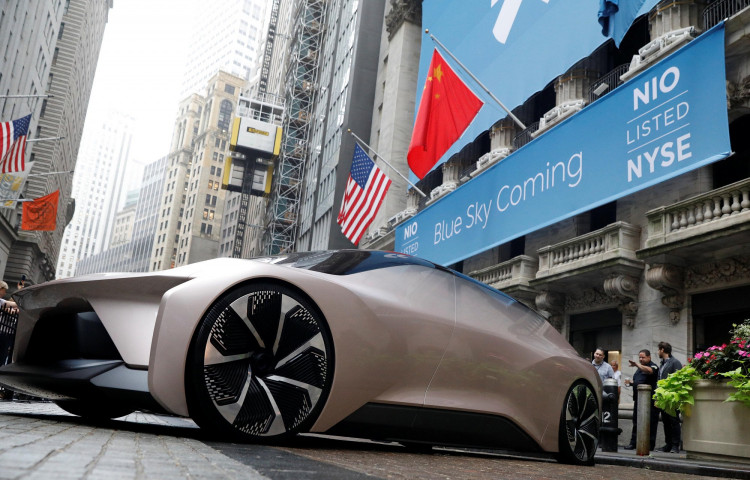The global electric vehicles industry is expected to continue growing, and China is in a good place in terms of dominance and production.
Chinese Startups Stand Up To The Tesla Challenge
While Tesla proved to be a huge obstacle in China's home-grown EV market competition, several Chinese startups answered the call to stand up to the foreign electric car entrant.
An example is NIO, whose compact SUV that rivals Tesla's Model Y, has a price tag that is 25% less than the latter, which makes it more attractive to local car buyers who want to experience the EV craze.
Two other Chinese EV startups, Li Auto and Xpeng, made stock market debuts this year that ultimately put up a challenge in the face of Tesla, which remains the top EV maker in the world.
Despite increasing interest in Chinese electric car startups, there is still the matter of competition, as there are over 400 brands in the global market.
The Issue On Profitability
Many Chinese EV makers have yet to turn their sales into profits, especially as most are startups and are still waiting in line for multiple rounds of funding.
Despite concerns on profitability, Chinese electric vehicle leaders have seen their value boosted over the past year, raising hopes for a local EV maker to turn tables as Tesla did in profitability in the future.
Among the companies that saw shares jump significantly are NIO and BYD Co., which are now valued at almost $70 billion and $69 billion respectively.
Industry experts said the increasing demand for electric cars from local companies is in part driven by the Chinese government's commitment toward a carbon-neutral environment by 2060.
While Chinese EV manufacturers have yet to reap in profits, it is expected that demand for more environmentally-friendly auto options will continue to spur sales and result in future profits.
Mini EVs in Center of Europe's Demand Boost
Mini electric cars slowly rose to fame this year after China's Wuling Hong Guang Mini EV emerged at the market.
While the mini electric car's abilities are limited compared to bigger EVs, industry experts believe the Chinese vehicle will make sense for consumers in poorer European communities.
With a base price of $4,400, Wuling Hong Guang's mini e-car could be the answer to the demands of European car buyers who want affordable but still reasonable auto options.
Other European automakers have also started developing EVs similar to Wuling Hong Guang's mini auto. France Citroen's Groupe PSA is looking to unveil its cute e-car called the Ami, but at a price tag of $7,300.
Skeptics are surrounding the growing mini EV sector but for some industry analysts, the cheaper, smaller, and better to maintain option may be more suitable for people hard-hit by the economic downturn.






